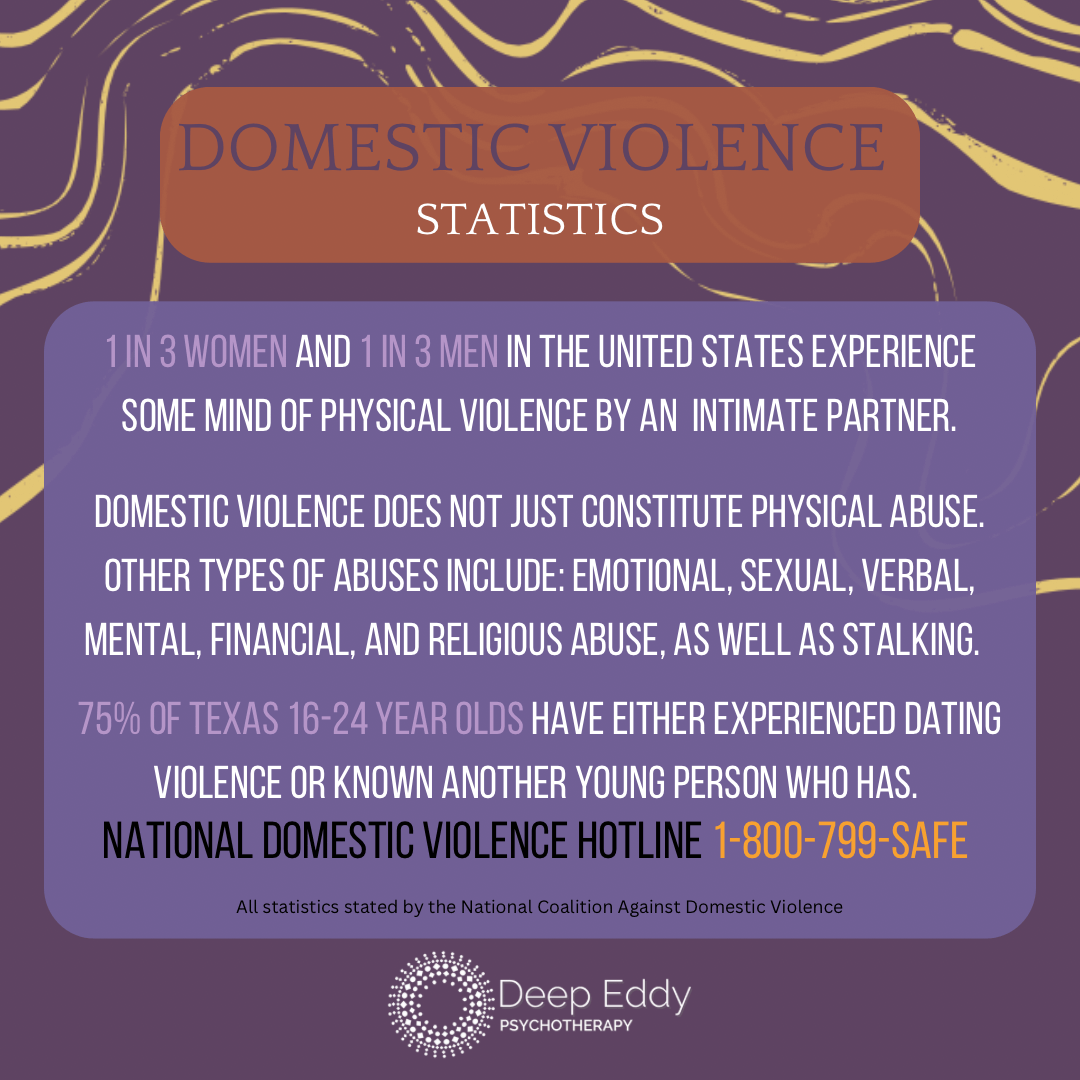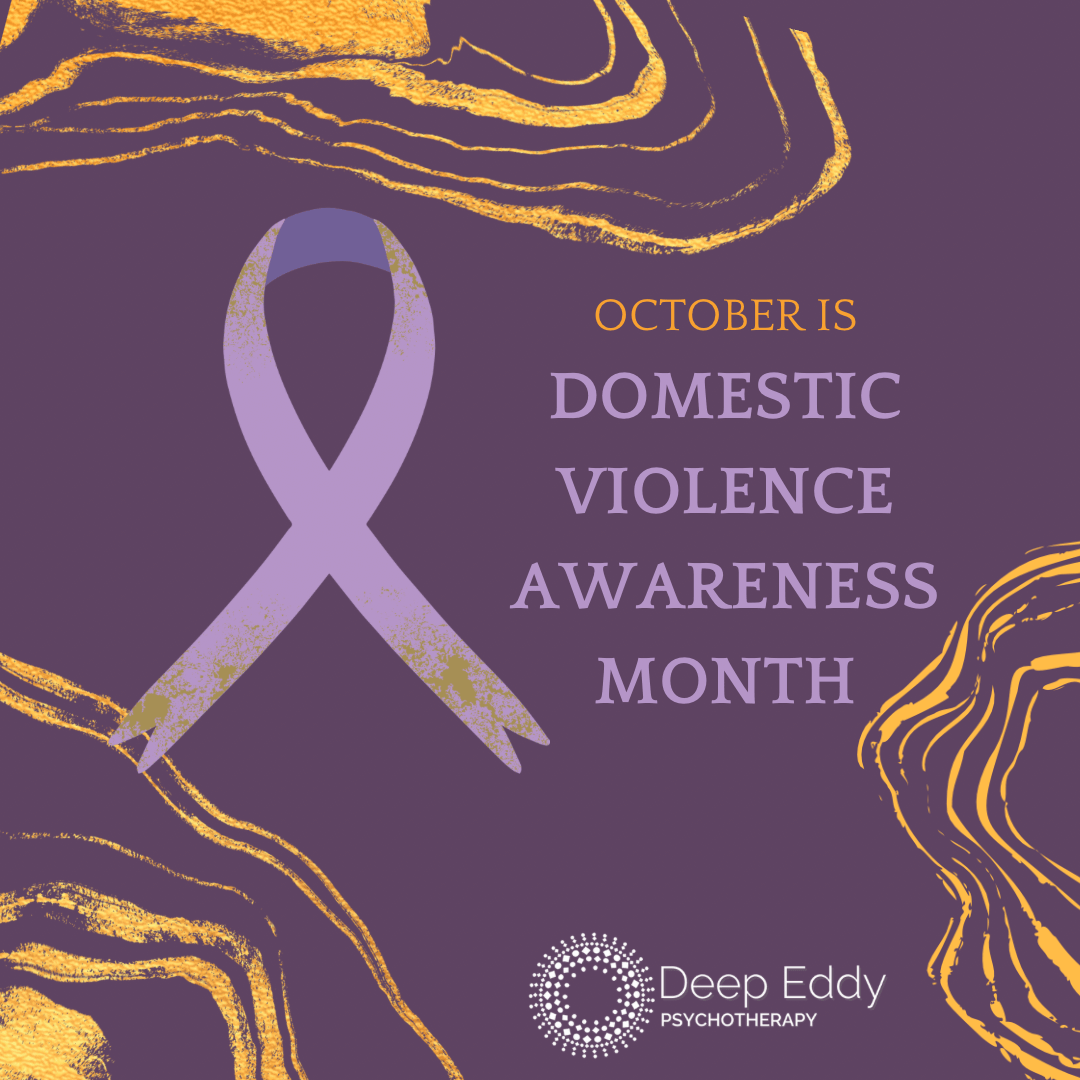Article by: Dr. Kyler Shumway, President & Chief Clinical Officer
October is Domestic Violence Awareness Month, a time to raise awareness about the prevalence and impact of domestic violence in our communities, and to support survivors in their journey of healing and empowerment.
What counts as domestic violence?
Domestic violence is a serious social problem that affects millions of people every year, regardless of their age, gender, race, ethnicity, sexual orientation, or socioeconomic status. It can take many forms, such as physical, emotional, sexual, financial, or digital abuse, and it can have lasting consequences on the health and well-being of survivors and their children.
If you are a survivor of domestic violence, you may be feeling a range of emotions, such as fear, anger, sadness, guilt, shame, or hopelessness. You may also be facing many challenges, such as finding a safe place to stay, getting legal help, accessing health care, or coping with trauma.
What should you do if you are in an abusive relationship?
You are not alone in this struggle, and there are resources and support available to help you. Here are some tips that may help you on your path to safety:
- Seek professional help. Domestic violence can cause physical and mental health problems, such as injuries, chronic pain, depression, anxiety, post-traumatic stress disorder (PTSD), or substance abuse. It is important to get medical attention for any injuries or illnesses you may have, and to seek counseling or therapy for any emotional or psychological issues you may be experiencing.
- Build or find a support network. You may feel isolated or ashamed because of the abuse you have endured, but you are not alone. There are many people who care about you and want to help you. You can reach out to your friends, family members, co-workers, neighbors, or faith community for emotional support and practical assistance. You can also join a support group for survivors of domestic violence, where you can share your experiences and feelings with others who understand what you are going through. Or, you can get connected with one of Deep Eddy’s DV specialists – we are here to help.
- Learn about your rights and options. You have the right to be safe and free from abuse. You have the right to make your own decisions about your life. You have the right to access legal and social services that can protect you and assist you. You can learn more about the laws and resources related to domestic violence here. You can also contact a domestic violence advocate who can help you with safety planning, obtaining a protective order/restraining order, filing for divorce or custody, applying for public benefits, or finding shelter or housing. You can call the National Domestic Violence Hotline at 1-800-799-7233 or chat online here to get connected with an advocate.
- Practice self-care. Self-care is not selfish or indulgent; it is essential for your well-being and recovery. Self-care means taking care of yourself physically, mentally, emotionally, and socially. It means doing things that make you happy and healthy. It means being kind to yourself and treating yourself with respect and compassion. Some examples of self-care activities are:
- Eating well and staying hydrated
- Getting enough sleep and rest
- Exercising regularly
- Meditating or doing yoga
- Reading or watching a movie
- Listening to music or making art
- Writing in a journal or expressing your feelings
- Spending time with people who love you and support you
- Setting boundaries and saying no to things that drain you
Remember that you are not to blame for the abuse you have suffered. You are not weak or worthless. You are strong and resilient. You are worthy of love and respect. You deserve to live a life free from violence and fear. You have the power to heal and thrive.

What can I do to help survivors of domestic violence?
Domestic Violence Awareness Month is also a time to take action and make a difference in the lives of survivors and their communities. There are many ways you can get involved and show your support, such as:
- Educate yourself and others about the signs and dynamics of domestic violence, and how to prevent and respond to it. You can find some educational materials and resources here.
- Speak up and speak out against domestic violence, and challenge the myths and stereotypes that perpetuate it. You can use your voice and your platform to raise awareness and advocate for change. You can find some tips and tools for effective communication here.
- Donate or volunteer for a local domestic violence organization or shelter, and help them provide essential services and support to survivors and their children. You can find a list of organizations and shelters near you here.
- Wear purple, the color of Domestic Violence Awareness Month, and show your solidarity with survivors and their allies. You can also use social media to spread the word and share your stories, using hashtags such as #DVAM2023, #EndDV, or #PurpleThursday. You can find some graphics and banners to use here.
By taking actions like these, you can make a positive impact in the fight against domestic violence, and help create a safer and more peaceful world for everyone.

